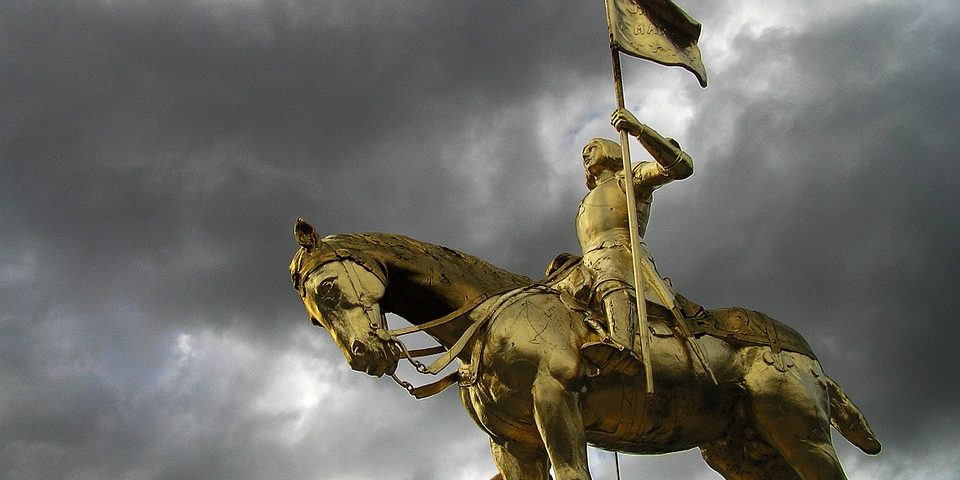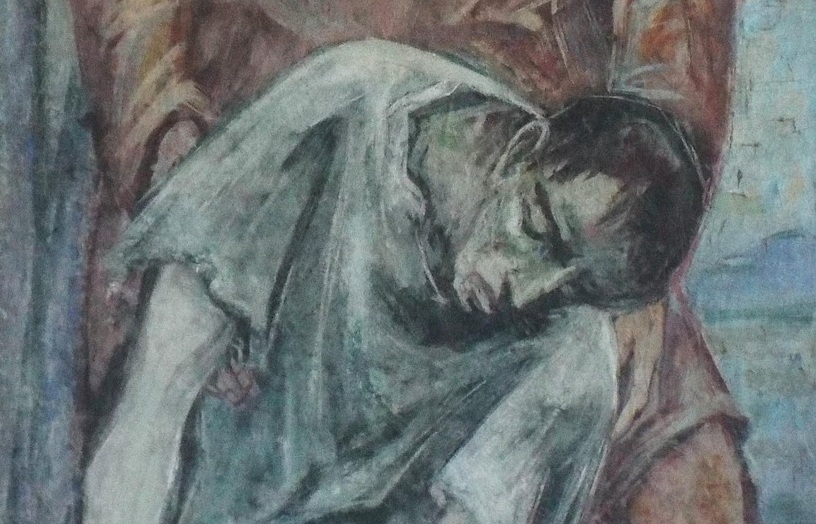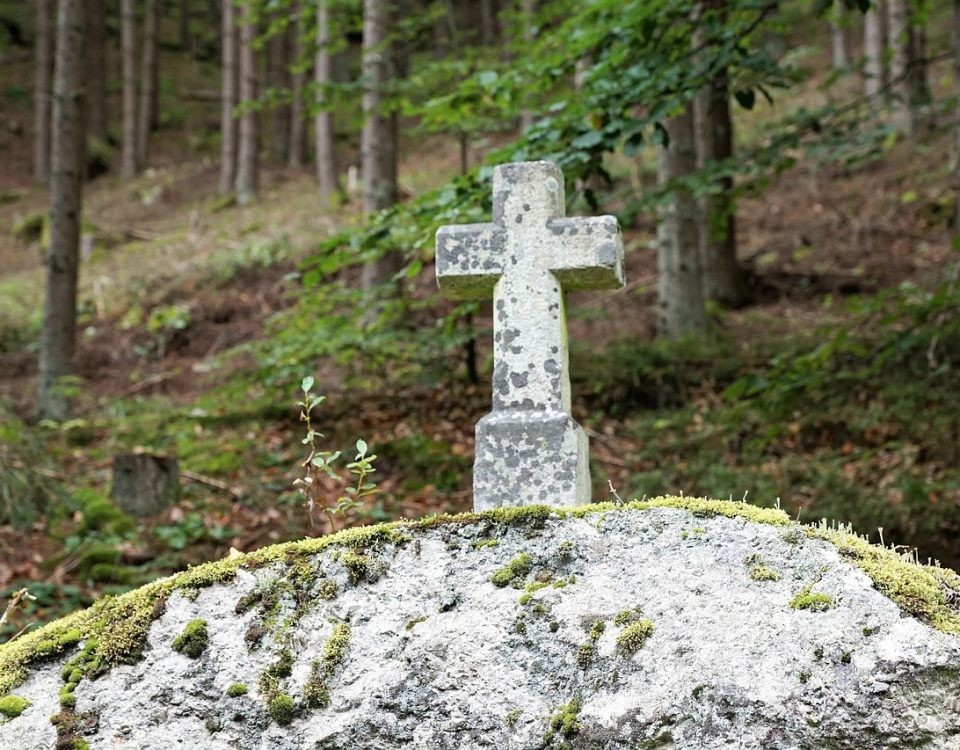It was a religious procession ready for war.
When the English looked out past the battlements of Orléans, early April 1429, what they saw, before any soldiers, were priests and acolytes, incense and a crucifix. What they heard, before the clatter of steel, was chanting, sacred music, the hymn Veni Creator Spiritus. What it was, though, was an army, at the head of which was a young girl they called simply “the Maid,” the teenager come from out of nowhere, the girl named Joan. She had heard voices for years—those of St. Catherine, St. Margaret, and Michael the Archangel—telling her she was to drive out the English from holy France, to crown a king. It was an odd miracle to have made it even this far, to have gained the confidence of a desperate would-be king. Yet, there she was, about to attack. “You men of England…the king of heaven orders and commands you through me, Joan the Maid…go back to your own country. If not, I will make a war-cry that will be remembered forever.”[1] Orléans was liberated in four days. The Maid terrified them, this strange warlike saint.
Everyone knows, of course, the rest of the story. Joan was tried by ecclesiastics in the pocket of the English, and by the English burnt at the stake. Vindicated and venerated soon as a saint by the French, she was declared a saint of the entire Church only in 1920. She is an unlikely saint, a strange saint to say the least; dressed as a man, hearing voices, engaged in battle: she enamors me because of that strangeness. I still don’t know quite what to make of her. She was combative, odd, a violent nationalist, faithful, close to Christ. That’s what I can’t figure out: how a saint could be so strange. Which may be the point.
We celebrate today the feast of Pentecost, the gift of the Holy Spirit, which remains a gift, for the Holy Spirit knows no ascension. The “Spirit of truth” proceeding from the Father, the “Advocate,” this gift, this Person of the Holy Trinity, will lead us into “all truth.”[2] That’s what Jesus promised; that’s the gift. Jesus is truth; the Spirit is the Spirit of truth. Today we celebrate the gift of the Spirit of Jesus, the gift of the Father. The point of this gift is nothing other than to enjoy the peace of the risen Jesus, the forgiveness of sins, and the blessedness of calling God our Father; the point is holiness. Now, of course, the holier you get, the more you’ll understand this. The rest of us will just kind of be here, unimpressed, unmoved—“Oh, it’s Pentecost, I forgot.” We don’t see the beauty of the gift anymore, many of us. If that’s you, go find somewhere to be silent, to learn how to wonder again; go figure out how to flee the atheism of noise and hear again the holy.
But be careful for what the Holy Spirit may do to you. Be open to it, but also know what you’re getting into. It may shock you. This brings me back to Joan, to that strange saint. Many people didn’t know what to make of her. She probably didn’t know what to make of herself. She could only do God’s will; at her trial the voices she heard didn’t tell her much; they just told her to speak “boldly.”[3] Many of the brightest theological minds, bishops, archbishops, cardinals had no idea what to make of her; she looked to so many people like a heretic, to others a witch, to others a simpleton. She was strange. She was a saint. But again, that may be the point. This gift of the Holy Spirit: it will make you strange, to some, perhaps, even dangerous. The idea that once you let Jesus and the Holy Spirit into your life, your life will suddenly straighten out, that a cool calm will come to your life: that’s not always true. Sometimes the opposite is true. So, be careful, as I said, for what the Holy Spirit may do to you. Know what you’re getting into.
Maybe there’s another point. Maybe we need strange saints again. Maybe we need saints we don’t understand and can’t tame. If the Spirit is real, if this Christianity business is real, if God in heaven, the crucified and risen Christ, is real, the martyrs and all the saints too, then maybe today’s saints should be stranger, embracing the wild danger of holiness and God’s will with all its risk. I’ve always been haunted by what Charles Péguy wrote once, that “Christianity in the modern world is no longer what it was…Socially it is nothing more than the religion of the bourgeois…a wretched sort of distinguished religion…It is therefore nothing; that is why it means nothing.”[4] Perhaps that’s what is lacking today from among us—we good comfortable, respectable Christians—the strangeness of sanctity, holiness so real it frightens us a little. Maybe that’s what’s keeping us from being believable to so many, because we’ve not dared to risk everything to be the stranger saints God may very well be calling us to become. Amen.
[1] Helen Castor, Joan of Arc, 104-112
[2] John 15:26; John 16:13
[3] The Trial of Jeanne d’Arc, February 24, Third Session passim
[4] Alexander Dru, Péguy, 82
© 2021 Rev. Joshua J. Whitfield










